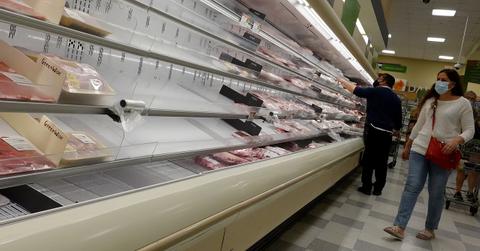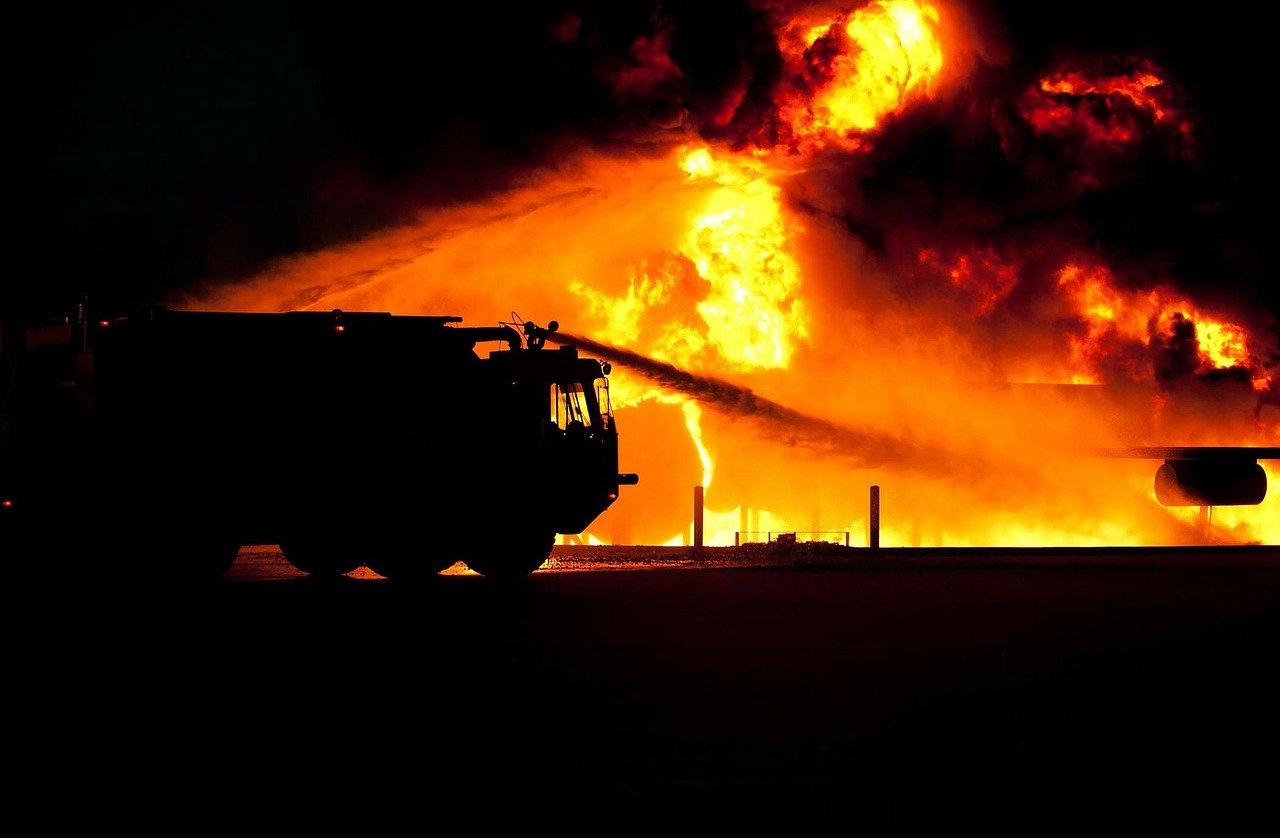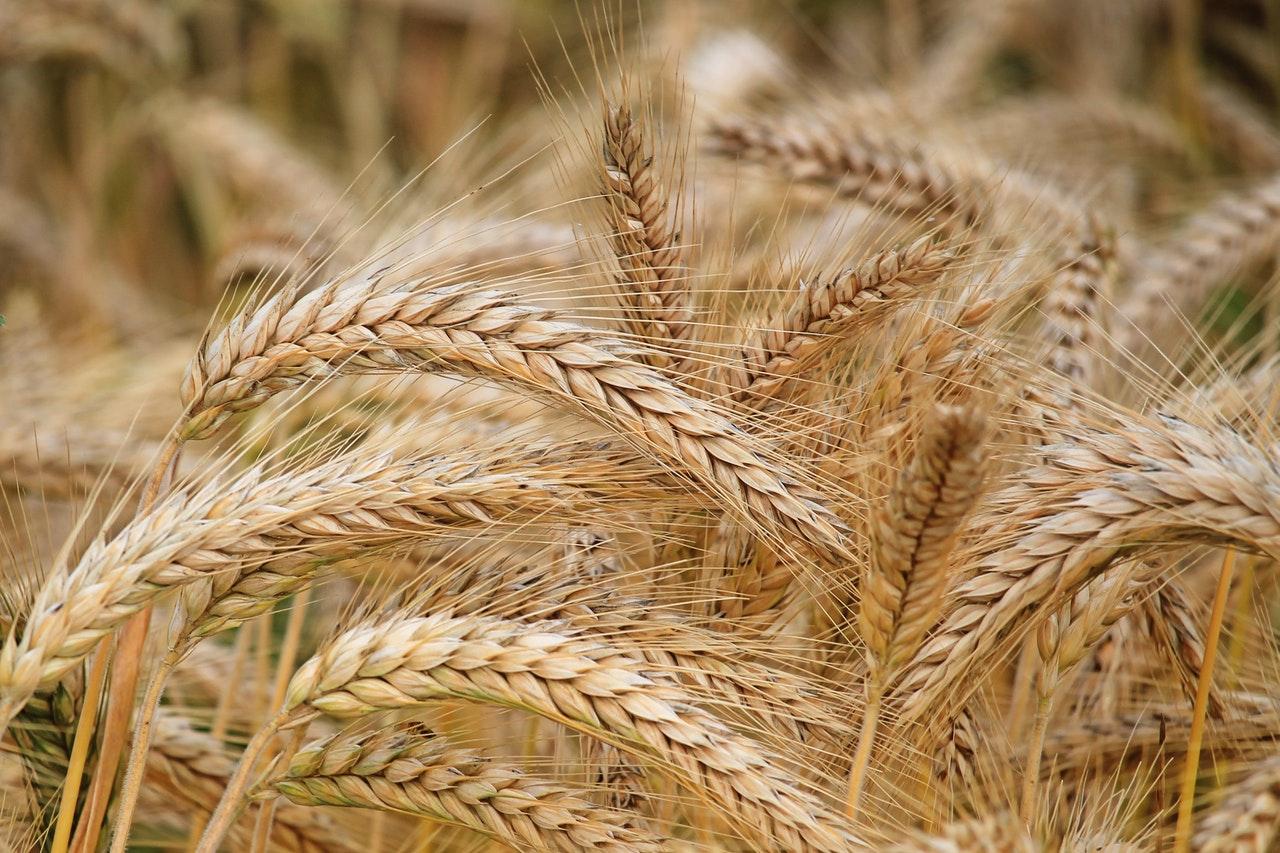Fact Check: Processing Plant Fires and Food Shortage Conspiracy
There have been rumors floating around about a food shortage conspiracy in the U.S. after several fires at food processing plants. Is there a food shortage conspiracy?
April 28 2022, Published 8:28 a.m. ET

Conspiracy theories aren't new even though they have increased in recent years amid the political polarization. Conspiracy theories flourished during the COVID-19 pandemic and several conspiracies about COVID-19 vaccines were floating on the web, which only added to vaccine hesitancy. Lately, there have been conspiracy theories floating about food shortages in the U.S.
To be sure, intermittent reports of food product shortages have been cropping up for almost two years now. Several people on social media have expressed displeasure at not being able to find some packaged food products. However, many see a sinister design in food shortages. Conspiracy theories have gained more ground after fires at several food processing plants.
There have been 12 food processing plant fires in the past six months.
According to PolitiFact, while social media posts have been claiming that there have been 18 food processing plant fires over the last six months, only 12 of them happened during this timeframe. Most of the fires, 11 to be precise, were ruled to be accidental.
Two of the fires are still under investigation, while in four cases no official cause has been attributed to the fires. One of the fires actually happened in a vacant building.
Do the food processing plant fires signal a conspiracy?
There are two reasons why the food processing plant fires don’t point to a wider conspiracy to “starve Americans” as many have been claiming on social media. First, fires at food processing plants invariably happen every year. Second, the fires won't materially impact the U.S. food supply chain since they are a tiny fraction of the around 35,000 food processing plants in the U.S.
But then, food processing plant fires are just one set of conspiracy theories. Some people see a wider conspiracy theory at play in Bill Gates buying farmland, while others believe that President Joe Biden is threatening U.S. food security.
Bill Gates has been purchasing farmland.
Gates owns an estimated 240,000–250,000 acres of farmland, which makes him the largest private landowner in the U.S. Add his misquoted views on the world population and his stance on genetically modified crops and we have a perfect conspiracy theory at hand.
However, what conspiracy theorists miss out on is that Gates only owns about 0.03 percent of total U.S. farmland and it isn't statistically possible for him to govern food choices in the U.S. or trigger a food shortage.
Biden isn't trying to endanger U.S. food security either.
U.S. Senator Marco Rubio (R-FL) has been calling upon the Biden administration to open up the roughly 4 million acres of land under the CRP (Conservation Reserve Program) for agriculture. However, according to Rubio, Biden refused for environmental reasons. Biden’s stance on climate change has been baffling many, especially amid soaring food and energy prices.
While many may be critical of Biden for the decision, the administration has taken several measures to alleviate the supply chain crisis in the country.
The FBI has warned farmers about ransomware attacks.
CBS News reported that the FBI has warned farmers about cyberattacks. In a private industry notification, the FBI said, “An attack that disrupts processing at a protein or dairy facility can quickly result in spoiled products and have cascading effects." Some see the warning as a reaffirmation of the conspiracy to create a food shortage in the U.S.
Goya CEO Bob Unanue spoke about the food shortage.
Adding to the conspiracy theory are recent comments by Bob Unanue, the CEO of Goya Foods, who said that the world is headed for a food crisis. He blamed the invading Russian forces for blocking Ukraine’s food production and exports. According to Unanue, "the U.S. has provoked, in a way, this war by showing an incredible weakness."
However, he added that the U.S. would be able to get over the food crisis much better than some of the other countries.
Let's link the dots on food conspiracy theories.
The Russia angle does have credibility. Russian President Vladimir Putin timed his Ukraine invasion. Consumers in the developed world were battling high food and energy prices before the Ukraine invasion.
Russia is a major energy and fertilizer exporter. Along with Ukraine, Russia is one of the major exporters of foods like wheat. Food and energy prices were bound to go up after the Ukraine invasion.
Putin’s assumption seems to have been that the West would cave in to pressure from their citizens who would criticize the governments for rising prices. That assumption has somewhat accurate looking at rising U.S. inflation, which has been accompanied by a fall in Biden’s popularity. However, Biden forewarned about the costs of “defending freedom.”
Also, despite high inflation, the West has been supporting Ukraine as much as possible while also imposing crippling sanctions on Russia even though it means collateral damage in terms of high inflation.
To sum it up, the current food conspiracy theories are mostly false even though attempts by U.S. adversaries to hit the country’s food supply chain can't be ruled out in the near future.


